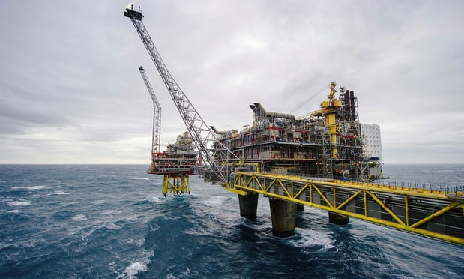DCS is Back in Court, Fighting for the Health of DRB Residents!
October 14, 2017Mis-Representative Fritz
November 21, 2017By Adam Vaughan, The Guardian, November 16, 2017
The Norwegian central bank, which runs the country’s sovereign wealth fund – the world’s biggest – has told its government it should dump its shares in oil and gas companies, in a move that could have significant consequences for the sector.
Norges Bank, which manages Norway’s $1tn fund, said ministers should take the step to avoid the fund’s value being hit by a permanent fall in the oil price.

The fund was built on the back of Norway’s hydrocarbon wealth, and around 300bn krone (£27.73bn), or 6%, is invested in oil and gas companies.
The recommendation by Norway’s central bank pushed down shares in European oil companies. Europe’s index of oil and gas shares hit its lowest level since mid-October on the news and was trading down 0.39% by late afternoon.
“The return on oil and gas stocks has been significantly lower than in the broad equity market in periods of falling oil prices,” the bank explained in a statement.
“Therefore, it is the bank’s assessment that the government’s wealth can be made less vulnerable to a permanent drop in oil prices if the GPFG [sovereign wealth fund] is not invested in oil and gas stocks.”
The Norwegian government said it would consider the proposal, but a decision should not be expected until next year and a “thorough assessment” was required.
“The issues raised by Norges Bank are complex and multifaceted,” the finance ministry said.
The bank did not set a deadline for when the fund should drop its oil and gas holdings. However, it made clear that its recommendation involved divesting from existing oil and gas shares as well as ruling out future investments.
The fund’s biggest oil and gas holding at the end of 2016 was $5.36bn in Anglo Dutch firm Shell, followed by $3.06bn in ExxonMobil, $2.04bn in fellow US oil firm Chevron, $2.02bn in the UK’s BP, and $2.01bn in France’s Total. It also has shares worth more than $1bn in oil services firm Schlumberger and Italy’s Eni.
The central bank’s move was welcomed by Paul Fisher, former deputy head of the Bank of England’s Prudential Regulation Authority and senior associate at the Cambridge Institute for Sustainability Leadership.
“It is not surprising that we see the world’s largest sovereign wealth fund managers no longer prepared to take the increasing risk associated with oil and gas assets, which do not have a long-term future,” he said.
Greenpeace Norway welcomed the central bank’s intervention, but said Norway must now also cease exploring for oil in the Arctic.
“Norway is already heavily invested in oil and gas resources, so selling off the oil fund’s fossil stocks will clearly help reduce our financial carbon risk,” said Truls Gulowsen, head of the group.
Norway’s largest private pension by value said that if the fund did ditch oil and gas stocks, the action could influence other investors.
Jan Erik Saugestad, chief executive of Storebrand Asset Management, said: “From a financial point of view this makes perfect sense, and we have been arguing for this for many years. This is a rational move given the overall exposure the Norwegian economy has towards oil.”
Bill McKibben, co-founder of climate group 350.org, said the move was “as astonishing as the moment when the Rockefellers divested the world’s oldest oil fortune”.
McKibben was referring to the Rockefeller Brothers Fund’s decision to divest from fossil fuels in 2014.
The oil price fell below $30 a barrel in January 2016 during a two-year slump, but has since recovered to just over $60 in recent weeks on geopolitical uncertainty and expectations that major oil-producers will extend production curbs.



